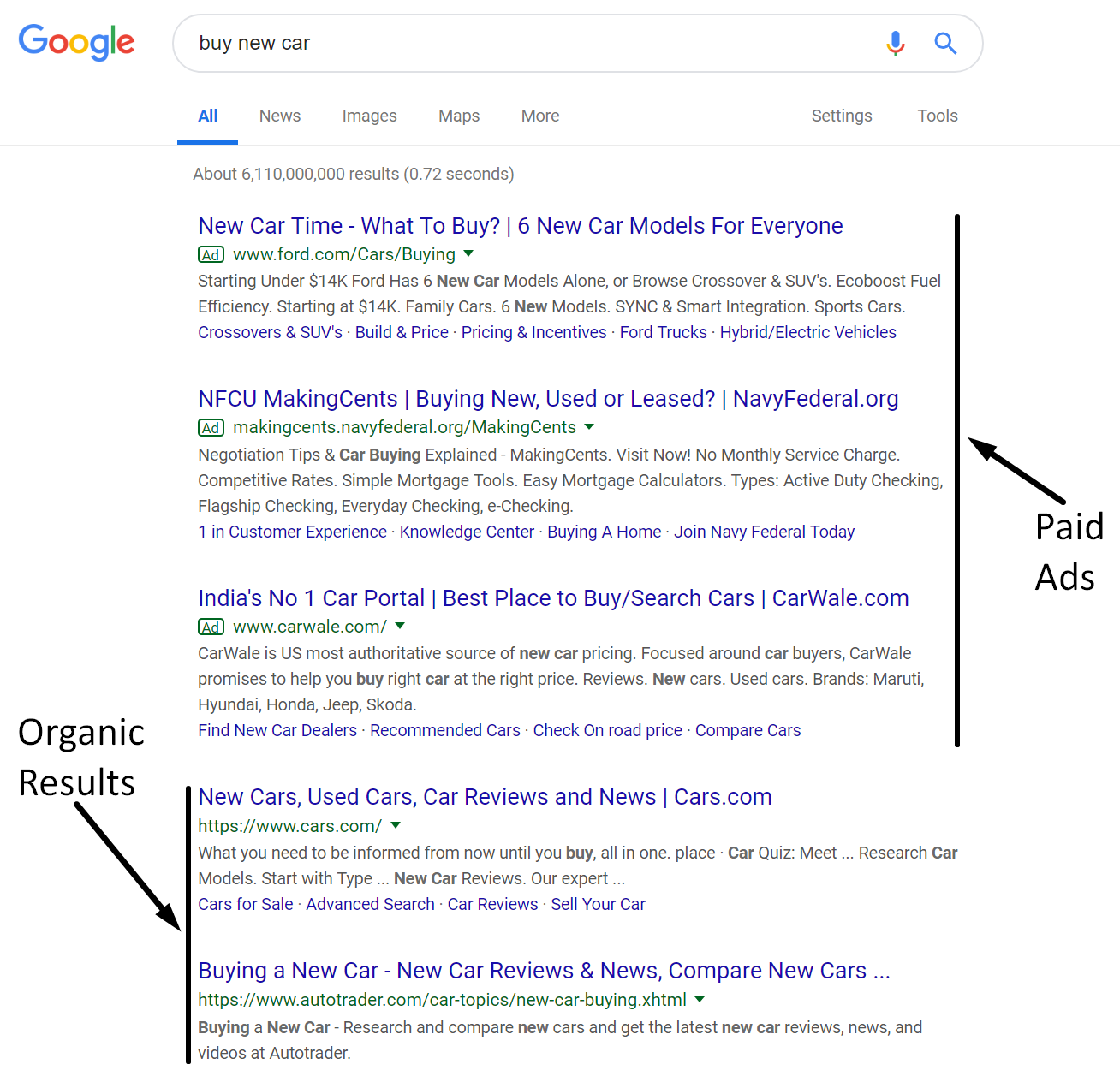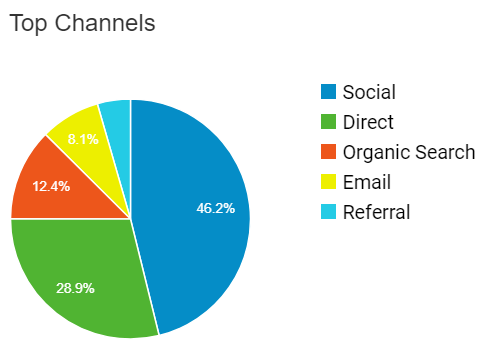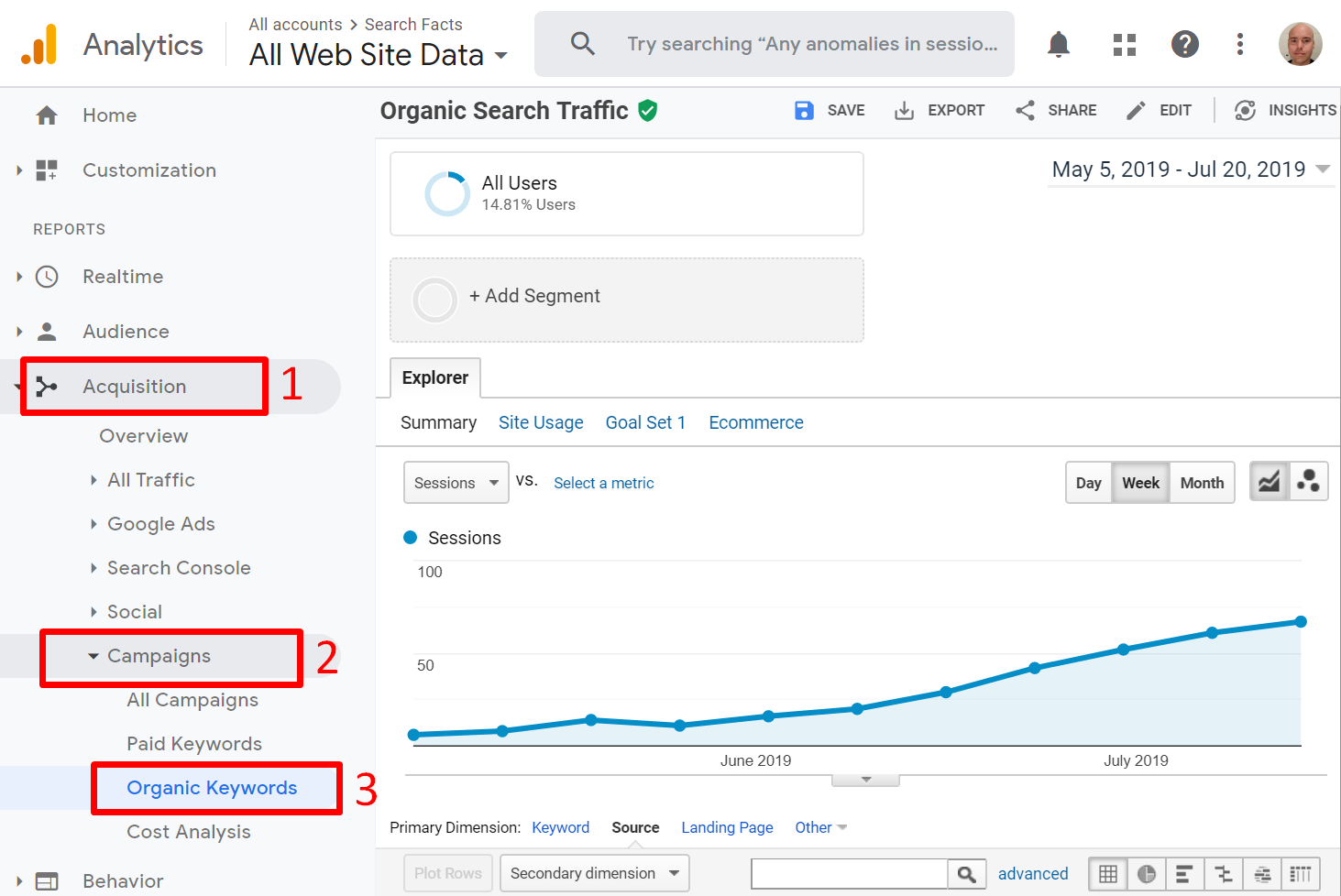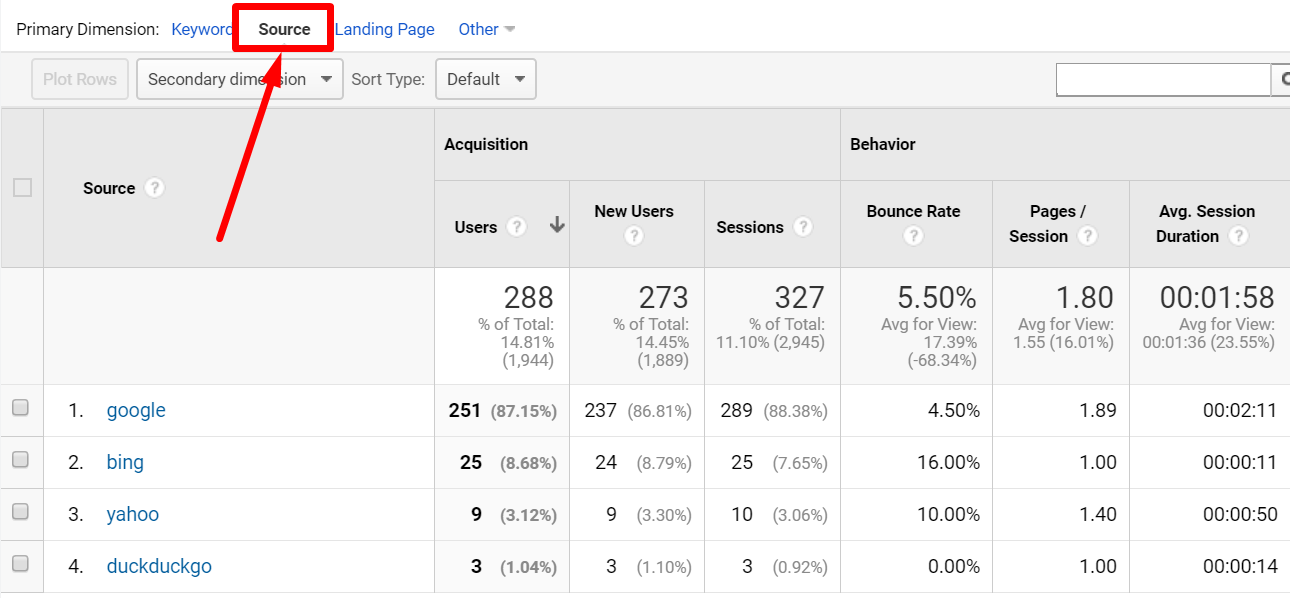Organic traffic measures visits to a website from a search engine that were earned naturally, but not paid for via advertising.
Visitors who are categorized as organic enter your website after searching the web with a search engine like Google or Bing.
In this way, the word “organic” simply means that it is via a search engine, but excludes paid search ads.
The word organic is commonly used in web analytics tools like Google Analytics to refer to regular unpaid traffic from a search engine.
Organic Search vs Paid Search
Organic search is when a person enters a search term into a search engine like Google or Bing.
The organic search results appear as a list of links to web pages and are based on relevance to the search terms, but exclude advertisements.
At the same time, non-organic search results include paid search ads.
This screenshot shows both paid ads and organic results in Google for a common search query:

The best way to discern between organic and paid search results is the small “Ad” label next to the paid ads.
In some cases, the organic search results also include other types of results — such as images, videos, maps, and others.
Bottom Line: A typical search result has both paid ads and organic listings. The ads are marked with a small “Ad” label.
Organic vs Other Traffic Sources
In Google Analytics and other web analytics tools, traffic is categorized into several groups:
- Organic: Traffic from search engines that excludes paid ads.
- Paid: Traffic from search engines that come from clicks on paid ads. The biggest paid search ad platform is Google Ads.
- Direct: Visits that came directly to the website, not through a search engine or a link.
- Social: Visits from social networks, such as Facebook, Instagram or Twitter.
- Referral: Visitors that clicked on a link from another site to get to your site.
- Email: If you do email marketing, then you can tag your links so that the traffic gets labeled as “Email” in Google Analytics.
Here’s a screenshot from my Google Analytics account for June 2019 that shows the different traffic sources:

Keep in mind that “direct” traffic often includes other traffic sources as well, but the visitors may have been categorized as direct because no referral information was sent with the click.
Bottom Line: Web analytics tools like Google Analytics often categorize traffic as organic, paid, direct, social, referral, or email. Some traffic may incorrectly be categorized as direct because of missing referral information.
Organic traffic in Google Analytics
Google Analytics is the world’s most popular web analytics tool. It also happens to be free and very easy to set up.
If you are using Google Analytics, then it is very simple to find information on your organic traffic.
Simply open the Google Analytics dashboard for your site, then go to Acquisition -> Campaigns -> Organic Keywords.
Now you will see a chart of how your organic traffic has changed over time:

This report defaults to showing keywords in the table below the chart, but this report isn’t particularly helpful these days as most of the keywords are listed as “not provided.”
If you want to see accurate keyword reports, then add your site to Google Search Console and view the performance report there.
If you change the primary dimension in Google Analytics from “Keyword” to “Source”, you can see which search engines you got the organic traffic from.

Then there’s plenty of more useful info you can get from this and other reports in Google Analytics.
For example, set the primary dimension as “Landing page” to see which pages get the most organic traffic.
Then you can click “Other” to see many more ways to analyze your organic search traffic data, such as which countries those visitors are coming from or which web browsers they are using.
Bottom Line: Google Analytics provides a lot of useful reports on your organic search traffic. You can analyze by source, landing page, country and more.
How to increase organic search traffic
The practice of increasing organic traffic from search engines is called SEO, which stands for Search Engine Optimization.
This is the art and science of making your web pages rank higher in search engines for popular search terms.
When your pages rank higher in organic search, people are more likely to click on them. This directly increases organic traffic to your websites.
At the same time, paid search advertising is generally referred to as SEM, or Search Engine Marketing. The most common type of paid search ads are pay-per-click (PPC) ads.
There are many ways to increase organic traffic with SEO:
- Keyword research: Figuring out which words and phrases people use when searching, then including these in your content.
- Title tags: Making sure that the titles contain the keywords in a natural and interesting way.
- Content: Having high-quality content that answers people’s search queries is the most important SEO ranking factor.
- Links: Earning natural links from relevant high-authority domains can improve your rankings.
- User experience: Having a site that people love to use will help you rank higher.
This is just the tip of the iceberg. For more details, read this article on the most common types of SEO techniques.
Bottom Line: The practice of increasing organic search traffic is called SEO, or Search Engine Optimization. This involves many different things, such as keyword research and improving content quality.
Organic traffic is the best type of traffic
In many ways, organic search traffic is the “best” type of traffic you can get to your website.
If you can rank high in search engines for popular search terms, you can often continue to get traffic to your site for years without any effort.
The traffic will come to your site, every hour of every day of every year, even when you are asleep or on vacation.
If you have ads or sell products on your site, then the consistent stream of organic search traffic can become a source of passive income.
For these reasons, it really makes a lot of sense for most website owners to learn about SEO. It is one of the most important skills in online marketing.